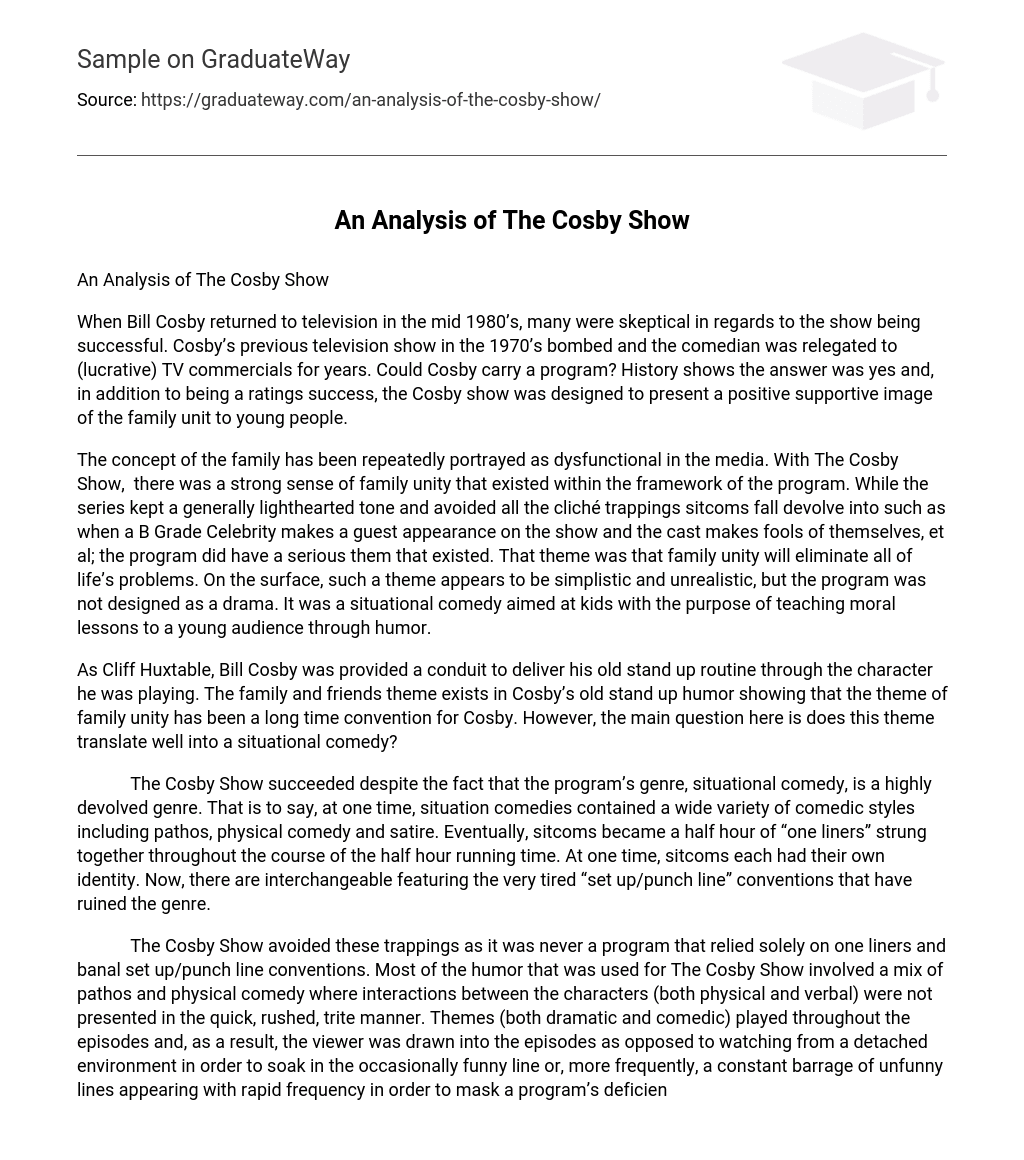When Bill Cosby returned to television in the mid 1980’s, many were skeptical in regards to the show being successful. Cosby’s previous television show in the 1970’s bombed and the comedian was relegated to (lucrative) TV commercials for years. Could Cosby carry a program? History shows the answer was yes and, in addition to being a ratings success, the Cosby show was designed to present a positive supportive image of the family unit to young people.
The concept of the family has been repeatedly portrayed as dysfunctional in the media. With The Cosby Show, there was a strong sense of family unity that existed within the framework of the program. While the series kept a generally lighthearted tone and avoided all the cliché trappings sitcoms fall devolve into such as when a B Grade Celebrity makes a guest appearance on the show and the cast makes fools of themselves, et al; the program did have a serious them that existed. That theme was that family unity will eliminate all of life’s problems. On the surface, such a theme appears to be simplistic and unrealistic, but the program was not designed as a drama. It was a situational comedy aimed at kids with the purpose of teaching moral lessons to a young audience through humor.
As Cliff Huxtable, Bill Cosby was provided a conduit to deliver his old stand up routine through the character he was playing. The family and friends theme exists in Cosby’s old stand up humor showing that the theme of family unity has been a long time convention for Cosby. However, the main question here is does this theme translate well into a situational comedy?
The Cosby Show succeeded despite the fact that the program’s genre, situational comedy, is a highly devolved genre. That is to say, at one time, situation comedies contained a wide variety of comedic styles including pathos, physical comedy and satire. Eventually, sitcoms became a half hour of “one liners” strung together throughout the course of the half hour running time. At one time, sitcoms each had their own identity. Now, there are interchangeable featuring the very tired “set up/punch line” conventions that have ruined the genre.
The Cosby Show avoided these trappings as it was never a program that relied solely on one liners and banal set up/punch line conventions. Most of the humor that was used for The Cosby Show involved a mix of pathos and physical comedy where interactions between the characters (both physical and verbal) were not presented in the quick, rushed, trite manner. Themes (both dramatic and comedic) played throughout the episodes and, as a result, the viewer was drawn into the episodes as opposed to watching from a detached environment in order to soak in the occasionally funny line or, more frequently, a constant barrage of unfunny lines appearing with rapid frequency in order to mask a program’s deficiency.
The Cosby Show successfully balanced the serious themes of family unity with the underlying humor of the quirkiness of the family members and went on to become one of the most popular sitcoms of all time. A significant reason for the program’s success was the fact that it avoided the boorish “set up/punch line” that many sitcoms fall victim.





